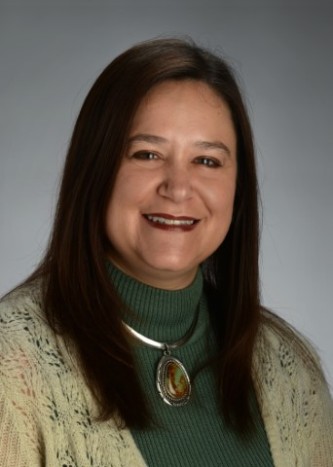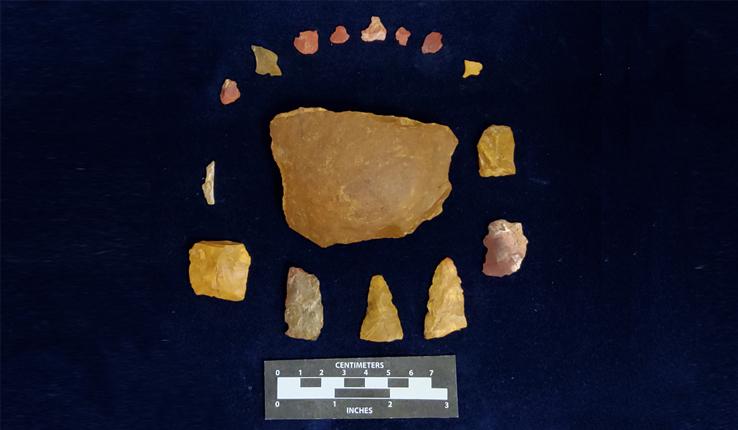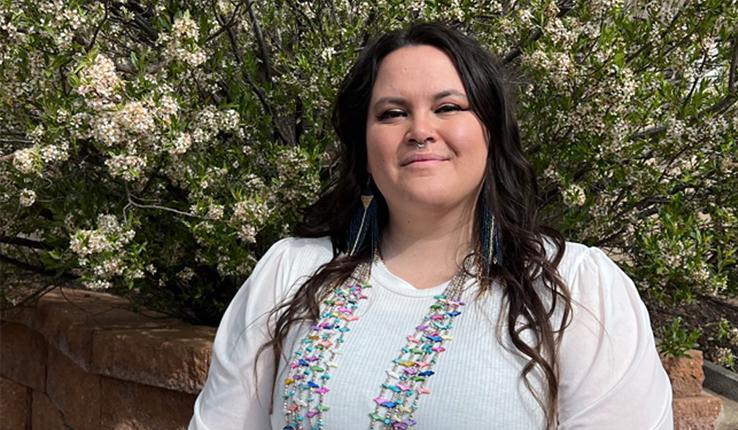Indigenous health expert and medical anthropologist Christine Makosky Daley will join Lehigh’s College of Health Aug. 1. Daley is currently a professor of family medicine and community health and director of the Center for American Indian Community Health at the University of Kansas Medical Center.
Indigenous Health Expert Christine Makosky Daley Joins the College of Health
Daley will serve as the co-director of a new Institute for Indigenous Studies.

Christine Makosky Daley will serve as the co-director of a new Institute for Indigenous Studies.
At Lehigh’s College of Health, Daley will serve as the co-director of a new Institute for Indigenous Studies (IIS), whose mission is to improve the physical, mental, spiritual and cultural health of Indigenous communities and individuals in the United States and abroad. As part of the new institute, Daley will further research funded by the National Institutes of Health and the Patient-Centered Outcomes Research Institute, including a study of the impact of COVID-19 on Indigenous populations.
“I am thrilled to welcome Dr. Christine 'Chris' Daley to the university and the faculty of the College of Health,” said Whitney Witt, inaugural dean of the College of Health. “Dr. Daley is a nationally recognized leader in the health and health care of Native Americans. Most notably, she has deep expertise in improving health behaviors (e.g., smoking cessation) among Native Americans.”
In announcing the new institute and Daley’s role as co-director, Witt said of Daley, “Her excellence in scholarship, teaching and service will establish Lehigh’s prominence in improving the health of Indigenous communities both in the U.S. and around the globe.”
Daley’s culturally tailored, community-based participatory research focuses on reducing health disparities among Native Americans, including reducing rates of lung cancer, diabetes, obesity and cardiovascular diseases.
“Addressing those issues is not just about saving individual people,” said Daley, who began working with American Indian communities more than two decades ago. “It's about taking an entire community and impacting it in such a way that we can reduce those disparities and make the prevalence rates look a bit more similar to other racial or ethnic groups.”
Daley said she looks forward to joining Lehigh, given its strong reputation as a leading research and educational institution and the opportunity she will have to build new programs and partnerships in the College of Health.
“I appreciate [Dean Witt’s] vision,” she said, “and I want to work with her on it.”
Daley holds a Ph.D. in applied medical anthropology from the University of Connecticut. She also earned a master of science degree in health and social behavior from the Harvard School of Public Health, a master’s degree in medical anthropology from Arizona State University and a bachelor’s degree in anthropology from Douglass College at Rutgers University.
Early on in her studies, Daley said, she had wrestled with whether to pursue a medical degree or continue her graduate studies in anthropology. As she continued to learn more about Native American cultures and the historical events that continue to impact Native Americans’ health, she said, her views on health—and on what health means—changed.
“Anthropology showed me that medicine doesn't have to be all about treating individual patients,” she said, “and I wanted to make a broader difference. Anthropology allows you to examine health and health issues in a holistic way, which is very important. That really struck me, working with American Indians. The holistic approach works very, very well.”
One area of her funded research centers on reducing tobacco use among American Indians, who have the highest prevalence of cigarette smoking among any racial or ethnic group in the United States. The research is critical, as smoking has an impact on heart disease, diabetes and other health matters. Her work with All Nations Breath of Life, a successful smoking cessation program that Daley helped to develop beginning in 2004, recognizes that tobacco is a sacred plant to many native people. The cessation program promotes honoring tobacco as a sacred plant, rather than abusing it recreationally.
Daley began creating a community-based participatory research team with local American Indian communities when she first joined the University of Kansas Medical Center. The team has grown into an alliance of organizations that includes academic institutions, American Indian tribes, community groups and businesses. In addition to tobacco prevention and control, the team’s research includes weight control and healthy living, cancer screening, social and behavioral epidemiology, environmental health, health literacy, maternal and child health, community education, and mental health and the ethical conduct of research.
Daley also directs a traveling outreach clinic that provides primary care screenings, as well as pediatric and young adult physicals, to those living on reservations or in urban areas. Screenings include cancer risk assessments, chronic kidney disease risk assessments, diabetic foot checks, heart disease risk assessments, nutritional counseling and body mass index checks. She said the team has begun to interpret the epidemiological curve of COVID-19 among Native populations.
An additional grant from the Patient-Centered Outcomes Research Institute will allow for the creation of several culturally tailored educational materials about COVID-19 for American Indian communities, an online resource of policies that have been implemented by different tribes in response to the pandemic, and surveys and interviews with Native people around the country to understand their knowledge, attitudes, beliefs and behaviors surrounding COVID-19.
Through the Native Research Ambassadors Program, Daley also is involved in training Native people from different communities around the country in how to be an advocate for research in their communities. The program includes instruction in how to write grants for programming.
Daley helps to run an anthropology/public health internship program for high school, college and graduate students that promotes better understanding of Native American populations. Through the program, students are exposed to research with Native communities, both on reservations and in urban areas. She hopes to also continue the program at Lehigh.




